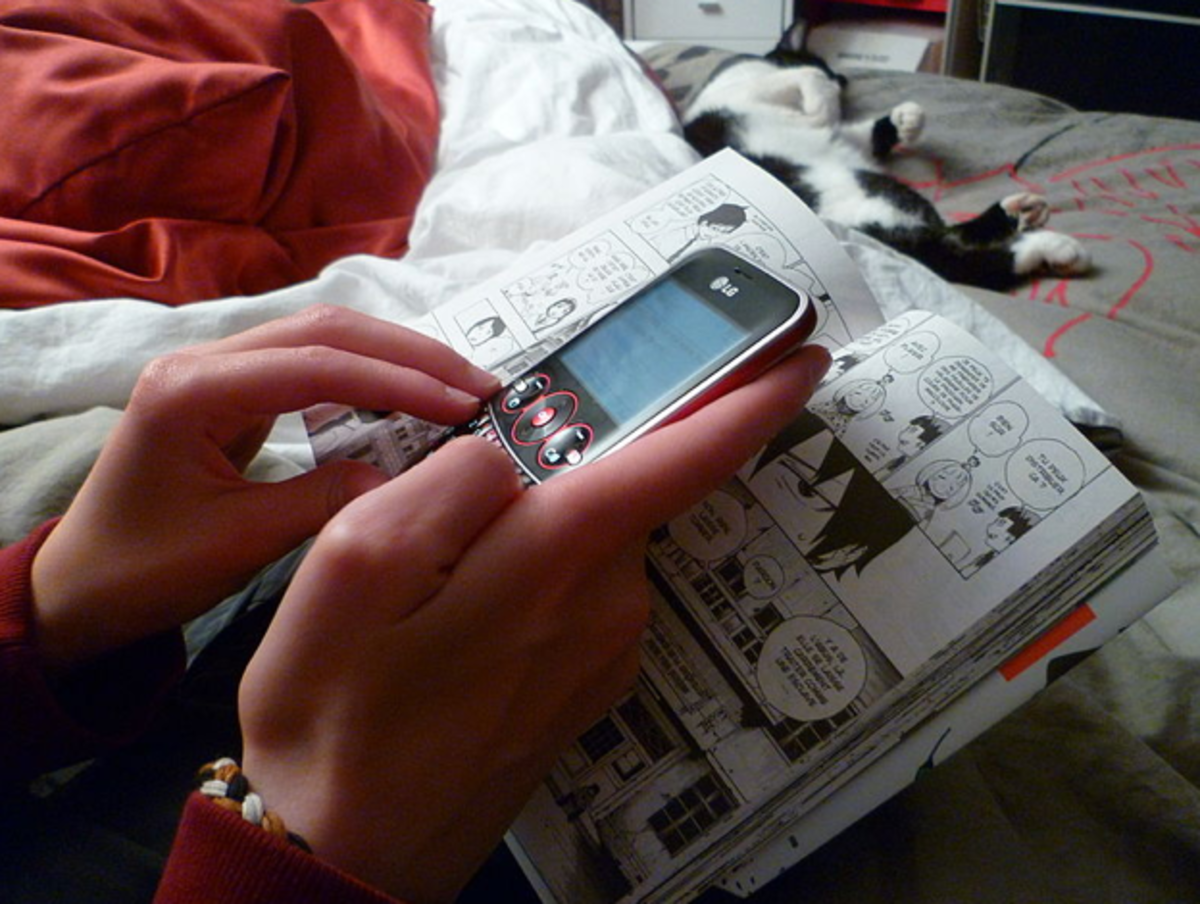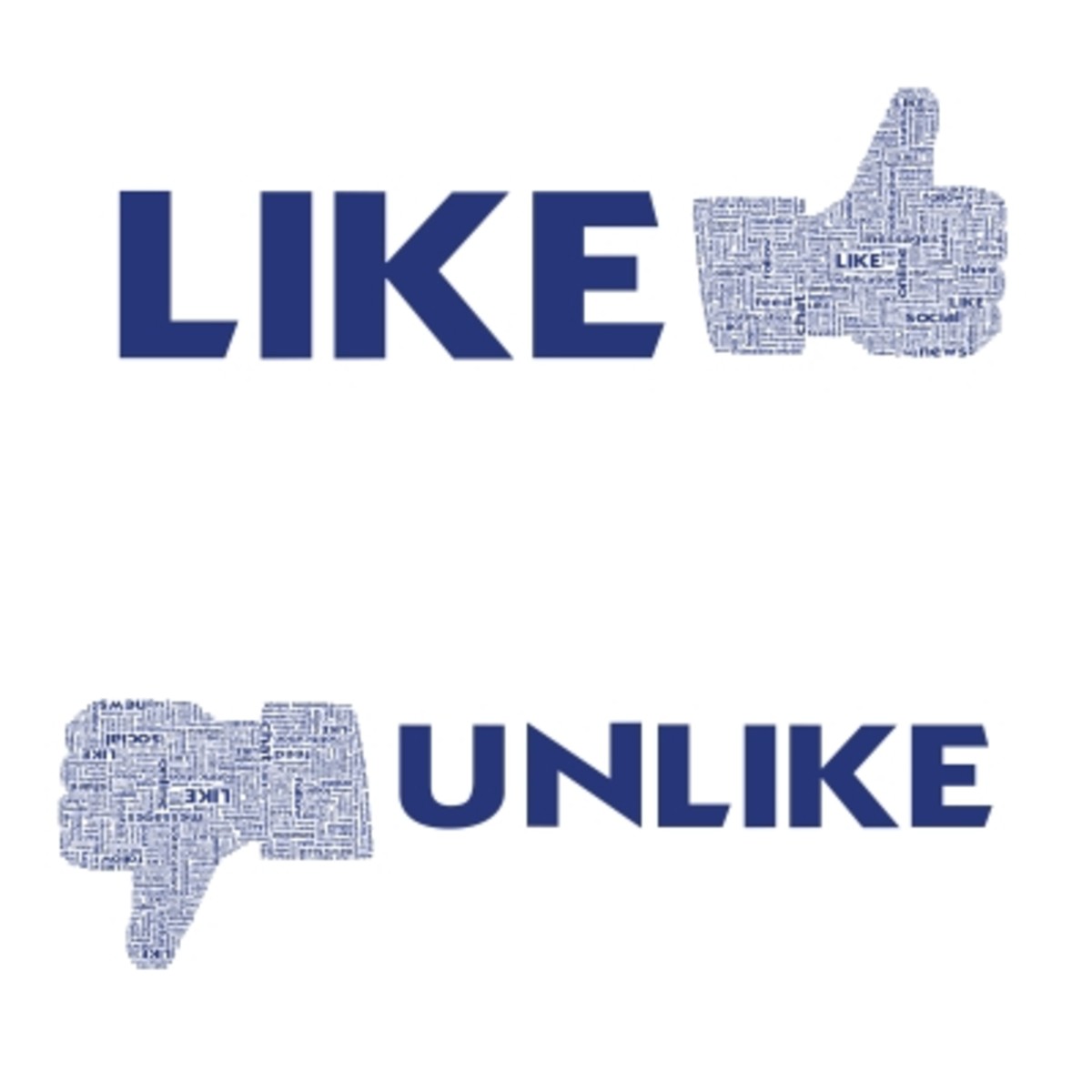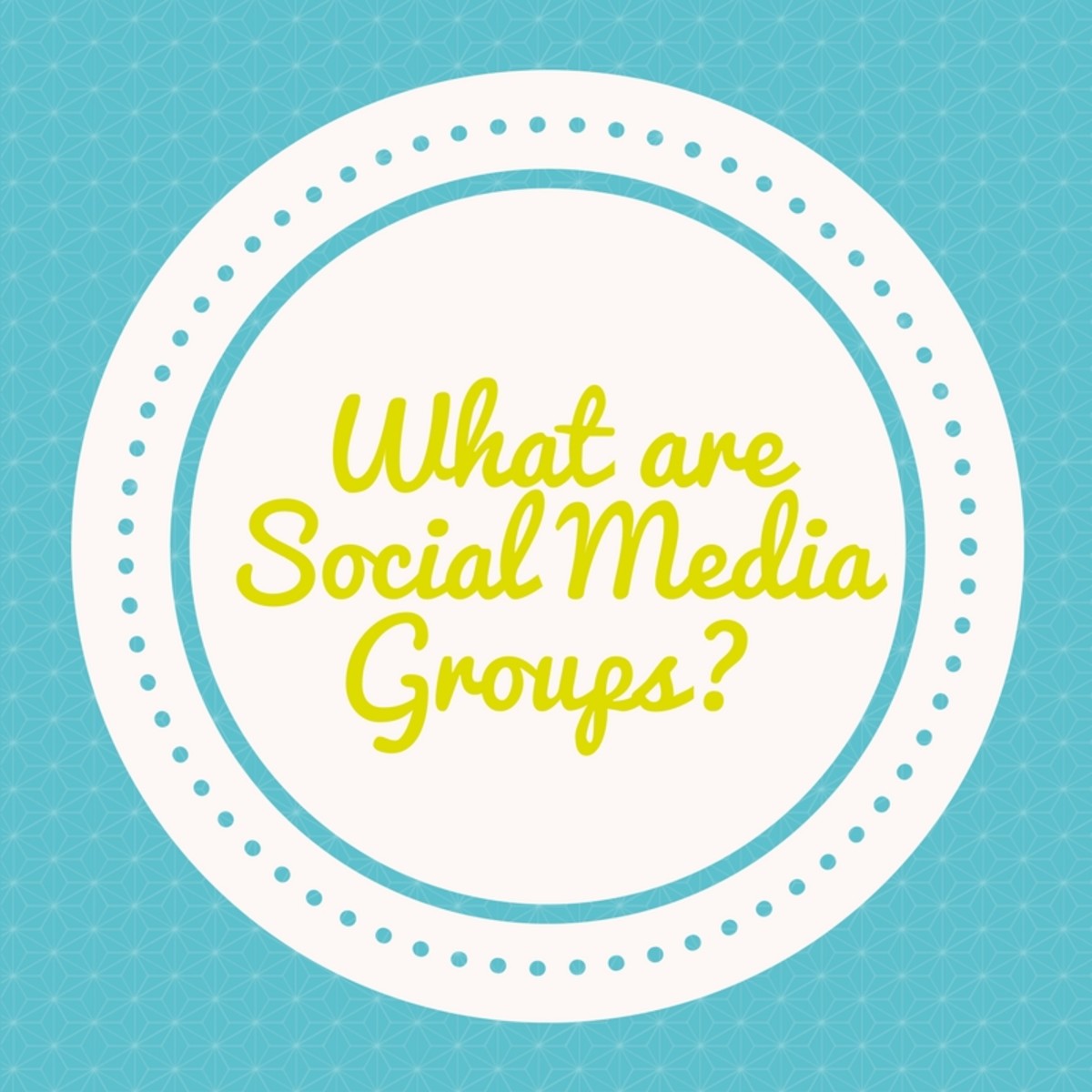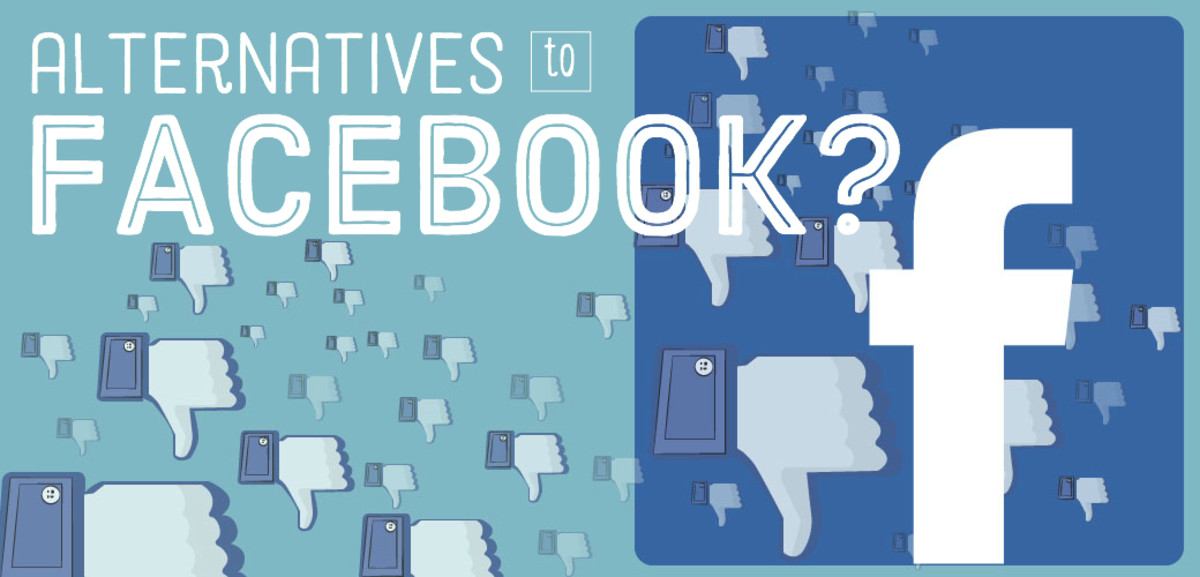Are You Headed for Social Media Burnout?
How Connected Can One Be?

How Much Social Networking is Too Much?
I sell resources and workbooks to educators online. That means my web sites for doing so need to be found. The standard advice is that social networking is one way to publicize my sites and help them get found by Google and other search engines. So, I joined Facebook, where I have a personal page and a page for my business, Barb's People Builders, where I notify interested people about new products and specials. Next came Twitter, where my user name is, of course, "barbsbooks." I had already started a blog for my business, Of Cabbages and Kings: Random Thoughts of an Internet Bookseller, and I thought that would pretty well take care of the blogging part of social networking. So much for social networking. Or so I thought.
That much social networking seemed manageable. I concentrated on my main selling web sites, updating with new products and price changes. I posted to my blog, and tweeted the links of new posts. At the beginning I only had a personal Facebook page, so I didn't use it for business, and just kept up with real world friends. Then things seemed to start snowballing. I was getting Facebook friend requests from booksellers whose names I did not recognize from the bookselling discussion lists on which I participated. Many people lurk, and since I posted often back in those days, they knew me, but I didn't really know them. I knew they were booksellers because we had mutual friends who were booksellers.
I had at first determined I would only accept friend requests from people I actually "knew," whether in the real or virtual worlds. I was not into just collecting friends to see how many I could gather. It was the booksellers who changed that. Some I "knew" pretty well, since I had worked with them in our booksellers cooperative, tomfolio.com. I had no problem accepting them as friends. But then when the friend requests came from the other booksellers I did not know, the situation got stickier, because they knew me and I didn't want to hurt their feelings. I still have some of these in friend request limbo. On Twitter, I didn't care who followed me. Anyone was welcome, but I didn't always follow back unless I had a good reason to. As far as I was concerned, my social networking was adequate. I concentrated on my web site and keeping my customers happy, and I posted a new blog about every week.
When I Was a Squidoo RocketMom
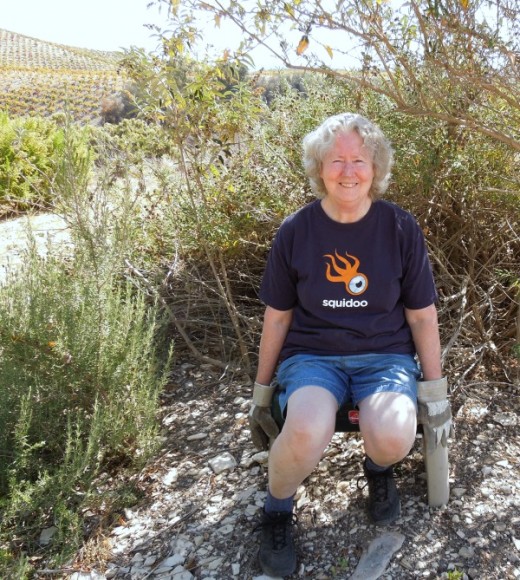
I Expand My Network to Squidoo, Gather, and Beyond
One day on Twitter I started getting tweets about a site called Squidoo. Sounded kind of strange and unbusinesslike to me, so I didn't pay too much attention to it. Then one day, due to a chance online encounter with a lensmaster, I decided to sign up. I started to write lenses under the name BarbRad. This introduced me to online writing, and I thrived in the Squidoo ocean, but it also took away from the time I spent on my main business. I also had added a personal blog on my garden, but I only worked on it during gardening season.
Then I joined the RocketMoms, "the smartest women on the web," a group of Squidoo lensmasters who were networking together to learn to build better lenses so they could earn more. (RocketMoms was dropped by Squidoo in 2011 and replaced with RocketSquids, which I never was part of.) RocketMoms had their own networking groups on Ning, and I joined several of them. It was in discussions on these Ning groups that I learned about Zazzle, another great creative outlet with the potential of increasing my on-line income with my photographs. So I opened a Zazzle store and used Squidoo lenses to publicize it and sell products I and others had made. Though the RocketMoms I also found out about Qondio (now dead) and HubPages, other writing sites I decided to join. My network got bigger, since the writing sites are also networks that make others more aware of your online presence.
As the participation in all these sites started to grow, I heard about Gather, a sort of combination writing and social network, and I joined that. Gather was so enjoyable that I spent way too much time there. I did earn a few pennies for my work , but it distracted me from my other work. Then Gather became unusable, was sold, and the part of it where we had our content is gone.
Some of My Social Networks
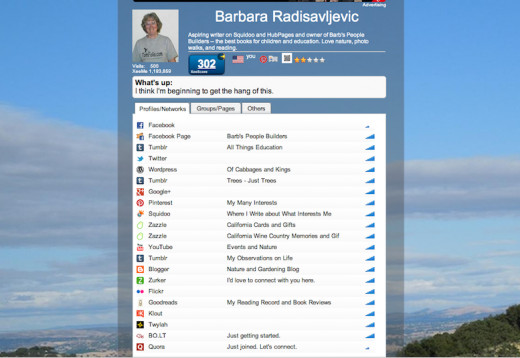
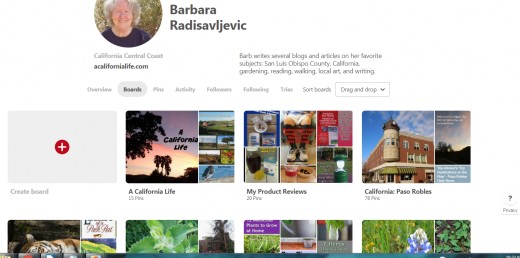
I Join Pinterest, Tumblr, and More
Of course when Pinterest came online I had to join. It's a great place to promote one's work, as long as it has a picture attached. I have trouble keeping up with it, but it's one site I'm glad I joined and it's fun when I have time for it.
In 2012 I found out about Tumblr, and started five blogs there. I like Tumblr for some kinds of posts . I just don't often get around to posting. It's a bit like Pinterest in that you reblog and comment on what others have blogged. I don't much like the mechanics of posting. I now have seven blogs there under two different accounts.
Then Zurker, another new social network started so I joined that. (It lasted only a little over a year.) Lastly, I just joined appearoo (then Xeeme), the ultimate social network where you can keep all your social profiles in one place and just link to that. On appearoo I discovered all kinds of other social networks such as Quora and Scoop.It.
Quora is a giant forum for discussion and networking with many people you don't know and some that you do. Scoop.It, like Pinterest and Tumblr, is a curating site where you create "scoops" on different topics. Some people use it for promoting their work on other sites.
If you join appearoo, you will, no doubt, discover a lot of new social networks you never knew about before. I don't use it too much for networking because it seems to be dominated by marketing and social media gurus. I am not one of those. I use it so that with one link I can send someone to all my sites, pages, and profiles. I no longer worry about raising my score there.
Now I confine my social networking activity primarily to Facebook and its groups for bloggers, three Twitter accounts, and social blogging sites myLot and Virily. Virily is the newest social blogging network. I enjoy it when I have time but I'm not sure if it will last any longer than Bubblews or Niume did. I reviewed Virily here.
We Are All So Interconnected

How Many Social Networks Do You Use?
Excluding the writing sites Squidoo, HubPages, Wizzley, Qondio and such, how many social networks have you joined?
Do Writing Sites Count as Social Networks?
I think writing sites and blogs can count. To be successful on them you need to be social. You not only need to respond to comments, but should also visit the commenter's work and comment on it if you can. In the past couple of years as I added more sites, I fell down on this part of the job here at HubPages and on my blogs. I am currently trying to rectify that
As discussions with friends on writing sites continued, the names of other sites started to pop up -- Wizzley, Zujava, and Webnuggetz. Wizzley is a writing site that is like a cross between the best of Squidoo and HubPages. Zujava, now gone, was much like Squidoo, but under different ownership. Webnuggetz offers more freedom to affiliate sellers than the other sites, and is also run by former Squidoo members. Recently I also returned to Seekyt, which I had joined years ago, but never posted on. As soon as I returned and published a new article, it changed its terms and I left. Then I joined Wikinut on the advice of friends, but it, too, changed its terms and I left.
Each day new sites come and go. There are several new ones I haven't mentioned here and some of those already appear to be in trouble. I've decided to wait on joining any more unless I see that there is a real star among them and the site has been around for at least three months. I believe it's far better to have a primary social network, a primary social blogging site, and a primary writing home. Once you have established those networks with enough posts and enough friends so that you feel at home, it's time to start adding more if you think you need them. For me, Facebook is my primary networking site, myLot my primary social blogging site, and HubPages is still my primary writing home. I find when I concentrate on these sites and my own blogs first, a little branching out won't hurt me.
5 Tips To Avoid Social Media Burnout
When Should You Quit Adding More Social Networks?
The main reason most people use social networking sites, besides keeping up with real world friends they don't often get to see, is to promote their businesses or their writing by getting the word out about new writing, new products, changes in the company, etc. The idea is that the more people who know about you, the better the chance your work will be read, your products will be bought, your sites will be visited. For me, that is the important thing -- expanding the number of new people who become aware of you and your activities.
It would seem, then, that if people in one network, such as Facebook (including the many writing site and writers' groups) already know about every new piece of writing you publish, that would be sufficient. Let's take as a given that all your Facebook friends and Twitter Followers won't see everything you post on those sites. Then maybe they will see something you post on another network or two they follow. But when is the point of no further value reached in the number of networks that the same 20 to 50 people all belong to?
Let's say I write a new hub. I post it to Twitter, Google+ and to Facebook writing groups. I might put a link to it in one or more of my blogs. Some might even get posted to articles on other writing sites that permit it. Yet a reader only needs to click once to see the blog, hub, or article. If I post my link, that same group will also see my link multiple times in different places. Would all of them be necessary? Or is it overkill? I have friends that post the same link in several different Facebook and / or Google+ groups, even though most people in those groups also belong to the others. Somehow that seems to be over the top.
So when do you need to join a new social network? It would seem wise to do so if you can expect to reach a different group of people. I'm finding a much different group of people than I see anywhere else on Virily's social blogging site. We are allowed one referral link under our post, but we have to go really easy on any links to other sites within our posts. I never use more than one, and only if it has a direct relationship to what I've posted.
To know the potential of a social network you just about have to join and try it out for a month or two as an active participant. By potential, I don't mean how much you earn from it directly from views. You need to see if any of your potential audience you don't already see somewhere else is using that network. If so, it might be worth building a presence there. Sites like Quora are for building name recognition in a field of interest where you'd like to be considered an authority. They are also good places to seek information on a variety of topics.
Another quality of a site to evaluate is the amount of time your post is there to see. In Twitter and on Facebook it's almost ephemeral. If you are only one of 200 or more active connections, your post may only be visible for a minute or two to whomever is watching at the time. On Facebook, not all of your friends even will get it in their feeds. Google+ is a bit better at making you visible. Notifications keep sending people back to posts on which where has been any interaction with you. Facebook groups give you more exposure because they are smaller and you have a lot in common with those in them.
On Quora, basically a site where people post questions for others to answer, topics stay open a long time. Your posted answer can stay up for years. I have answers that are still posted and viewable since 2013. It has a huge audience and is searchable by topic. If people like your question or answer they can share it to social media. You can also write blog posts there. You could also spend all day there and not get another thing done. It's good for research, but they don't pay you for your participation in cash, and there's no way to monetize blogs posts you write there that I can see. If you know a lot about certain subjects, Quora may be a site you could utilize well. You can post links to articles as answers to questions.
Have You Reached Burnout Yet?

When Do You Reach Social Networking Burnout?
I'm beginning to think I've bitten off more social networking than I can keep up with. I'm so busy social networking I rarely have time to write -- if I keep up with it. The more places I have to post links to my writing, the less time I have to build my business and actually write. How about you? Do you think it's better to join lots of social networks hoping it will really expand your circle of people who see your work or find out about your business? Is it the back links from all those sites which make joining every possible site worthwhile? Or does all the promotion through social networking keep you from producing more quality work?
Which social networks have you found most useful to promote your writing or your other business ventures? Which have been more trouble than they are worth? Knowing what you do now, would you handle your online social networking differently if you were starting over today? I'm hoping you will use the comments section to discuss this, since I suspect I'm not the only one with this dilemma. Maybe we can learn from each other how to arrange or rearrange our social networking priorities.
© 2011 Barbara Radisavljevic

